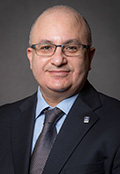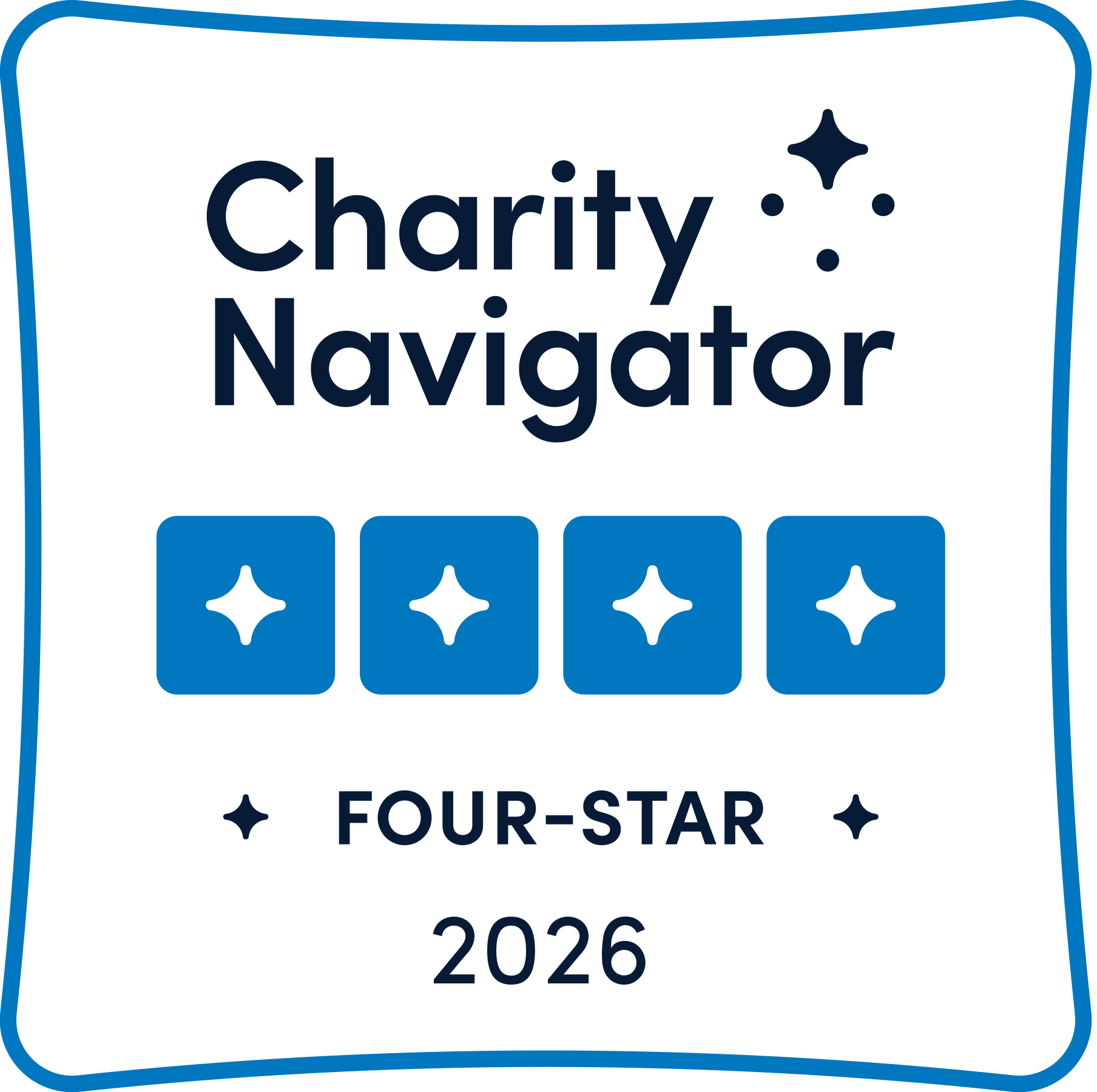2020 Award and Grant Recipients
Below are brief biographies for American Skin Association's 2020 grantees. Among the information included is the title of the grant, the name of the sponsoring institution and the focus of the grant recipient's research.
-

Douglas Osborne, PhD
2020 ASA Milstein Research Scholar Award for Melanoma/Non-Melanoma Skin Cancer
University of Colorado Anschutz Medical Campus
Topic: Role of IL-37 in Regulatory T cells and MelanomaDouglas Osborne, PhD is an instructor in the Department of Dermatology at the University of Colorado Anschutz Medical Campus. Dr. Osborne received his PhD from the University of Montana in Biochemistry with a focus on Immunology. After graduate school Dr. Osborne focused on CD4+ T cells biology and development at the Mayo Clinic in Rochester, MN. In Dr. Osborne’s current position in the lab of Mayumi Fujita in the Department of Dermatology at University of Colorado Anschutz Medical Campus he works on the anti-inflammatory cytokine IL-37 and its role in regulatory T cells, finding significant implications for the cytokine in regulatory T cell function, signaling, and maintenance. We also perform in depth clinical studies looking at IL-37 and its connection to melanoma (a main focus of the lab).
-

Benjamin Ungar, MD
2020 ASA Milstein Research Scholar Award in Atopic Dermatitis
Icahn School of Medicine at Mount Sinai
Topic: The Relationship Between the Skin Microbiome and Immune and Barrier Dysregulation in Moderate-to-Severe Atopic Dermatitis PatientsBenjamin Ungar, MD graduated cum laude from Harvard University before attending the Icahn School of Medicine at Mount Sinai for medical school. During medical school, he participated in the Rockefeller University’s Clinical Scholar program, and was awarded the Dr. Harold Lamport Biomedical Research Prize. Subsequently, he started his dermatology residency at the Icahn School of Medicine at Mount Sinai, where as a physician-scientist dermatology resident, he continues his research in the laboratory of Dr. Emma Guttman, the Sol and Klara Kest Professor of Dermatology and Vice Chair for Research of the Department of Dermatology. Dr. Ungar's research is focused on better understanding the relationship between the skin microbiome and the cutaneous phenotype of atopic dermatitis in moderate-to-severe patients. This grant will enable elucidation of the intricate relationship between the microbiome and the cutaneous immune and barrier factors participating in creating the atopic dermatitis disease profile.
-

Indermeet Kohli, PhD
2020 ASA Calder Research Scholar Award in Vitiligo/Pigment Cell Disorders
Henry Ford Health System
Topic: Visible Light and Ultraviolet A1 for Vitiligo PhototherapyIndermeet Kohli, PhD is a cutaneous Research Physicist in the Department of Dermatology at Henry Ford Hospital, Detroit, MI. She is also an Assistant Professor at the Department of Physics and Astronomy at Wayne State University, Detroit, MI. Dr. Kohli has extensively researched and developed new methods for assessing progression of dermatologic conditions including post inflammatory hyperpigmentation, vitiligo and hidradenitis suppurativa. She pioneered the synergistic effects of visible light and long wavelength ultraviolet A1 (VL+UVA1) on skin pigmentation and erythema. Her current research focuses on photoprotection against this waveband, and also on potential therapeutic effect of this waveband to induce pigmentation in patients with hypo/de-pigmentation disorders such as vitiligo. She serves as the chair of the imaging committee of the Global Vitiligo Foundation (GVF) and as a member of the board of directors of the Photodermatology Society (previously known as Photomedicine Society).
-

Prashiela Manga, PhD
2020 ASA Melly Family Research Grant in Psoriasis/Inflammatory Skin Disease
New York School of Medicine
Topic: Investigation of Post Inflammatory Hyper PigmentationPrashiela Manga, PhD, is an Associate Professor in the Ronald O. Perelman Department of Dermatology at New York University School of Medicine. Her research is focused on the biology of skin pigmentation and pigmentation disorders. Her past studies identified the genes involved in oculocutaneous albinism (OCA) type-2, -2B and -3; and investigated the function of the TYRP1 and OCA2 proteins in melanocytes. Dr. Manga’s laboratory is currently investigating how melanocytes protect against environmental toxins and stressors by activating the unfolded protein response (UPR). Their work has implicated this stress-triggered pathway in dysregulation of the antioxidant response and instigation of an autoimmune response targeting melanocytes, leading to the onset of vitiligo. Ongoing studies are exploring the role of the UPR in determining cellular response to melanoma chemotherapies and in stimulation of post-inflammatory hyperpigmentation.
-

Bassel Mahmoud, MD, PhD, FAAD
2020 ASA Mulvaney Family Foundation Research Grant in Vitiligo/Pigment Cell Disorders
University of Massachusetts Medical School
Topic: Melanocyte Transplantation Plus Topical JAK Inhibitor for Treatment of Vitiligo: A Randomized StudyBassel Mahmoud, MD, PhD, FAAD is an Associate Professor of Dermatology at the University of Massachusetts Medical School. He is currently the director of Teledermatolgy, and a member of Vitiligo Clinic and Research Center at UMass. He is a current Member of Public Education Committee and an ex-member of the Organizational Structure Committee of the American Academy of Dermatology.
Dr. Mahmoud received a combined doctoral and medical degree from the University of Ain Shams. He completed residency training in Dermatology at Ain Shams University Hospitals, where he then had an Academic Faculty position at the department of Dermatology. He then did a residency in Dermatology at Henry Ford Hospital, in Detroit, Michigan followed by an extra year of training at Harvard Medical School / Lahey Clinic, Massachusetts in procedural dermatology for Mohs micrographic surgery in the treatment of skin cancers and the use of lasers in various skin disorders.
Because of his combined training, he specializes in the diagnosis and care of complex dermatologic skin disorders with particular attention to cutaneous oncology. He has been a primary author in publications in the field of photodermatology and lasers surgery for the use in disorders of skin. He has published more than 20 research papers and wrote 10 book chapters in the medical and surgical field of Dermatology. He is also an editor on the textbook “Handbook of vitiligo: Basic science and clinical management”, one of the most recently published textbooks that has comprehensive overview in the disorders of vitiligo, that include all the recent advances in this field. Dr. Mahmoud is a reviewer for most of the dermatologic journals; he is a speaker at many dermatology conferences and has received many awards, locally and abroad.
-

Tamara Terzian, PhD
2020 ASA Mulvaney Family Foundation Research Grant in Vitiligo/Pigment Cell Disorders
University of Colorado Anschutz Medical Campus
Topic: Targeted Therapy for VitiligoTamara Terzian, PhD is an Assistant Professor of Dermatology at the University of Colorado Anschutz Medical Campus, Aurora, Colorado. After obtaining her PhD in Biomedical Engineering at the University of Claude-Bernard-Lyon I, Dr. Terzian joined Dr. Guillermina Lozano’s lab at UT MD Anderson to pursue her postdoctoral training. Her work with mouse models of p53 uncovered molecular mechanisms underlying mutant p53 stabilization and their contribution to tumorigenesis. Currently, Dr. Terzian is focusing on designing novel medicinal options to treat cancer, in particular melanoma, and devastating diseases such as vitiligo and lymphedema. Her long-term goals is to find novel therapies to improve the quality of life of patients, while encouraging students to consider careers in biomedical research and promoting community outreach for melanoma in schools and universities.
-

Manuel Garber, PhD
2020 ASA Pfizer Research Grant for Vitiligo/Pigment Cell Disorders
University of Massachusetts Medical School
Topic: Defining Cell Type Specific Epidermis Regulatory Elements to Enable Vitiligo Functional GenomicsManuel Garber received his Ph.D. in Mathematics at Brandeis University in 1999. From 1998 to 2004 Dr. Garber worked on building applications of incipient web technologies to telecommunications, financial services and distribution channels. In 2004 Dr. Garber joined the Broad Institute as a computational biologist. At the Broad Institute, he focused on analyzing the human genome sequence and led studies of the evolution of segmental duplications. He later developed comparative sequence analysis methods to detect regions undergoing natural selection using the growing number of sequenced genomes of related mammalian species. Dr. Garber’s focus shifted to functional characterization of genomic elements using genome-wide functional assays such as RNA-Seq and ChIP-Seq. Dr. Garber’s methods have been critical to the discovery and characterization of a novel set of large intergenic non-coding RNAs (lincRNAs) and to our understanding of the immune transcriptional response to pathogens. In September 2012, Dr. Garber moved to the University of Massachusetts Medical School to establish his laboratory and direct the Bioinformatics core. He is an associate professor in the Program in Bioinformatics and Integrative Biology. Dr. Garber continues to study lincRNAs and in particular their evolutionary history, as well as the systematic dissection of the transcriptional regulation of the immune response.
-

Dan Filipescu, PhD
2020 ASA Ping Y. Tai Foundation Research Grant in Skin Cancer/Melanoma
Icahn School of Medicine Mount Sinai
Topic: MacroH2A as a Novel Chromatin Regulator of the Melanoma MicroenvironmentDan Filipescu, PhD, is a postdoctoral fellow in the departments of Oncological Sciences and Dermatology at the Icahn School of Medicine at Mount Sinai. His research interests are centered on elucidating how disruption of the epigenetic landscape impacts tumorigenesis. Dr. Filipescu started his biology studies in Romania and graduated from the École Normale Supérieure in Paris. He received his PhD studying the connection between deregulation of centromeric chromatin factors, p53 loss and cellular transformation under the mentorship of Dr. Geneviève Almouzni at the Institut Curie (Paris). His postdoctoral work in Dr. Emily Bernstein’s laboratory leverages genetically engineered mouse models to understand how loss of the histone variant macroH2A, occurring during human melanoma progression, shapes the interactions between transformed, immune and stromal cells to promote tumor growth and immune evasion.
-

Samantha Guhan
2020 ASA J.T. Tai & Co. Foundation Medical Student Grants Targeting Melanoma and Skin Cancer Research
Massachusetts General Hospital
Topic: Cyclin - Dependent Kinase 9 as a Therapeutic Target in Uveal and Triple-Wild Type MelanomaSamantha Guhan is a fourth-year medical student at Harvard Medical School. She graduated magna cum laude from Harvard College, with a concentration in Human Developmental and Regenerative Biology and a secondary in Global Health and Health Policy. She is currently pursuing a research year in the Department of Dermatology and Wellman Center of Photomedicine at Massachusetts General Hospital with Dr. Hensin Tsao. Her research focuses on gaining a better understanding of the inherited and acquired genetic variants that increase melanoma risk, and finding new therapeutic options for the treatment of metastatic melanoma. She is originally from Newbury Park, California.
-

Natella Maglakelidze
2020 ASA J.T. Tai & Co. Foundation Medical Student Grants Targeting Melanoma and Skin Cancer Research
Pennsylvania State College of Medicine
Topic: Defining Aire Function in UV-Induced DNA Damage Response and Early Stage Non-Melanoma Skin CancerNatella Maglakelidze is a third-year MD/PhD student conducting research in the lab of Ryan Hobbs, PhD at the Penn State College of Medicine. Her current research focuses on the role of autoimmune regulator (Aire) in UV-induced non-melanoma skin carcinogenesis and hair follicle biology. She received her Bachelor’s Degree in Biology from The College of New Jersey in 2015. Her undergraduate research explored developmental genetics in zebrafish. She then completed a two-year Postbaccalaureate Cancer Research Training Award program at the National Cancer Institute where she investigated chronic graft-versus-host disease. Natella is originally from Russia and grew up in Fair Lawn, New Jersey.
-

Catherine Wang
2020 ASA J.T. Tai & Co. Foundation Medical Student Grants Targeting Melanoma and Skin Cancer Research
National Institute of Arthritis and Musculoskeletal and Skin Diseases, National Institutes of Health
Topic: Role of CD200 in Modulating Immunoregulatory Macrophages in Merkel Cell CarcinomaCatherine Wang is a fourth-year medical student at the Keck School of Medicine of USC and a research fellow in the NIH Medical Research Scholars Program (MRSP). She grew up in Cupertino, California and received her bachelor’s degree in Physiological Science from UCLA. She is currently conducting research on Merkel cell carcinoma and cutaneous adverse effects of a novel immunotherapy agent in Dr. Isaac Brownell’s lab in the Dermatology Branch, National Institute of Arthritis and Musculoskeletal and Skin Diseases (NIAMS) at the NIH.
-

Eliot Zhu
2020 ASA Cohen Family Medical Student Research Grant
University of Iowa
Topic: Targetable Drivers of Drug Resistance to BRAF Inhibitors in MelanomaEliot Zhu is a 5th-year MD/PHD student at the University of Iowa. He obtained his BS/MS in Systems Biology and Bioinformatics from Case Western Reserve University, where performed research that involved the mathematical modeling of neural signals under the mentorship of Dr. Roberto Galan. He went on to work for a year as a Bioinformatics Specialist at The Ohio State University, in the lab of Dr. Sameek Roychowdhury, where he deployed bioinformatics tools for precision cancer research. His experiences at Ohio State propelled him to purse a medical research career focused on next-generation cancer therapies. He is currently working towards a PhD in Cancer Biology under the mentorship of Dr. Adam Dupuy at The University of Iowa. His research seeks to understand oncogenic signaling in cutaneous melanoma in order to uncover vulnerabilities that can be exploited for therapeutic gains. His work involves the use of various genetic screening methodologies including the Sleeping Beauty transposon system.
Recipients list by year:
2024 |2023 | 2022 | 2021 | 2020 | 2019 | 2018 | 2017 | 2016 | 2015 | 2014 | 2013 | 2012




